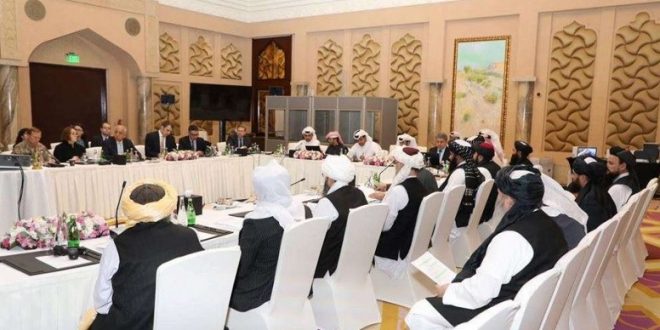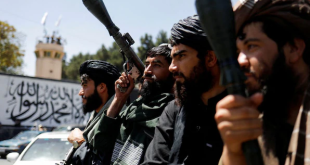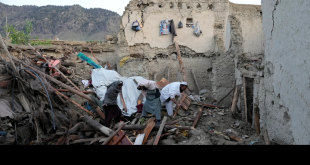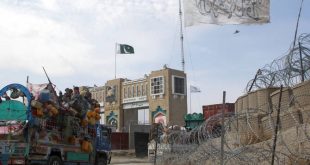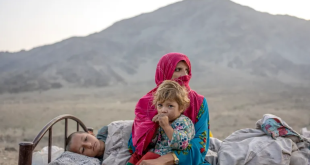Ahmad Katawazai
United States Special Representative for Afghanistan Reconciliation, Zalmay Khalilzad signed a landmark peace agreement with the Taliban putting an end to 18 months long complex and long pending peace talks. The weeklong truce “Reduction of Violence” passed off successfully, paving the way for this long-awaited US-Taliban peace agreement.
The agreement sets a timetable for the withdrawal of US troops in exchange for guarantees from the Taliban not to allow terrorist groups such as Al-Qaeda to operate in their territory.
This is a key development aimed at bringing an end to America’s longest war, allowing President Trump to point to a campaign promise kept “getting the US out of its longest war, and bringing US troops back home.” The agreement stipulates that the US will draw down its troops to 8,600 from 12,000 stationed in Afghanistan. Moreover, this is a sigh of relief for Afghans that have been suffering from almost four decades of war.
However, the difficult and complex part i.e. the intra-Afghan negotiations has yet to follow. The journey ahead could be long and prone to risks. Details of the intra-Afghan negotiations are still vague. Both the Afghan government and Taliban negotiating positions are not yet clear.
Based on the agreement 5,000 Taliban fighters will be released from the Afghan-run prisons. But, the Afghan government is concerned and hesitant to agree to that, because of the legal hurdles in this regard. Moreover, these prisoners remain as a key leverage for the Afghan government in the intra-Afghan negotiations. Realizing that factor, the Taliban have put release of their prisoners as a pre-condition for the commencement of the intra-Afghan negotiations with the Afghan Government. Inmates
Reintegration of the tens of thousands of Taliban insurgents in the democratic society of Afghanistan that has far changed during the past 18 years is another key challenge. Given the presence of the millennials with progressive mindset, strong presence of warlords, various Jihadi leaders, who have fought for decades with the Taliban, and strong political and ethnic divisions, shepherding the sides toward intra-Afghan negotiations will be complex and difficult than expected for the negotiators.
The Taliban said that they will not talk to the government of Afghanistan but will negotiate with representatives from the Kabul administration.
There has been fierce squabbling over power, among Afghan political leaders ahead of the US-Taliban peace deal signing ceremony. This began when the Afghanistan Election commission declared President Ghani as the winner of the September 28 presidential election. His top political rival, Abdullah Abdullah, the Chief Executive in the unity government, contested the results and threatened to form a parallel government. U.S. Secretary of State Mike Pompeo pleaded for Kabul to come up with a “fully representative” team for talks with the Taliban. Pompeo called on the fractious leadership to think of the greater good and not to miss a rare window of opportunity. “God forbid, if we lose this opportunity, then it is gone forever,” he said.
At this critical time, Afghanistan cannot afford another turmoil. The peace agreement requires the backing of a unified Afghan nation. Political and ethnic fragmentations due to political disagreements can further add to the fragility which the country is currently grappling with.
The international community, particularly United States, should encourage various Afghan political leaders to reconcile the differences caused by the presidential election controversy. If the political crisis continues the way they are, Afghan government will face enormous stumbling blocks to ensure implementation of the US-Taliban post peace deal scenario and successfully holding the intra-afghan negotiations, a pivotal part for the durable peace in the country. For the success of the intra-Afghan negotiations there has to be a stable, authoritative and inclusive administration that could represent Afghan people from a strong stance. Confusion and fissures could drag the process into further crisis.
Complete U.S. withdrawal from the country could encourage neighbor countries to continue with their spoiler proxies and tacit links to the terrorist networks operative in the area. Also, there is a need for some kind of persistent US counterterrorism and oversight presence to prevent other terrorist groups like Al-Qaeda and ISIS from operations in the country. During his visit to New Delhi, President Trump pointed to persistent US presence in the region. “We’ll always have intelligence; we’ll have other things there,” he said.
Leaving the country completely would be a blunder and mere repeat of the history like the U.S. did in 1980’s. With the Soviet Union disintegration, the US left the country that created a void, paving the way for civil war and emergence of terrorist networks like Al-Qaeda in the country.
In order to ensure U.S. and NATO continued support to Afghanistan, the US Defense Secretary Mark Esper and NATO Secretary General Jens Stoltenberg announced a joint declaration with Afghan President Ghani that coincided with the US-Taliban signing ceremony. This is a welcome move on the part of U.S. and NATO to express their continuous support to Afghanistan in post-peace deal situation. U.S. Defense Secretary, Mark Esper said that the U.S. will not hesitate to nullify the agreement if Taliban broke the deal.
The US-Taliban peace agreement has set the stage for the US troops to go back home and paved the way for a lasting peace, if the intra-Afghan negotiations succeeds. This will be a win-win situation for all sides. In case this does not work, with the presence of the U.S. troops still in the country, the situation might return back to the status-quo.
Now, it’s up to Afghans to form a united, strong, and inclusive negotiating team with a better leadership that could prevent the fragile and complex intra-Afghan negotiations from falling apart and translate it into a durable peace.
 Afghanistan Times
Afghanistan Times
